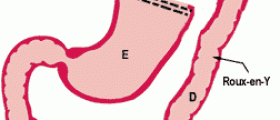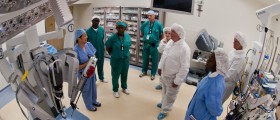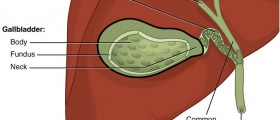
Gastric bypass surgery is associated with a number of complications. There are potential complications related to all major operations and specific risks associated with gastric bypass surgery. In this article we will deal with different complications caused by gastric bypass surgery. Both short-term and long-term complications will be listed.
Gastric Bypass Surgery Overview
A gastric bypass is a surgery to treat obesity by reducing the volume of the stomach and shortening the length of small intestine. In this procedure, a surgeon divides the stomach into two divisions, the smaller, upper pouch and larger, lower pouch. This is done with the help of surgical staples. The upper part of the stomach is then connected to the middle section of the small intestine or the jejunum. Thereby, the rest of the stomach and the first part of the small intestine (the duodenum) are bypassed.
This changes anatomy of the stomach and an operated person feels full more quickly. Thus, the person eats less which leads to weight loss. Gastric bypass surgery also has an effect on psychological way in which the person responds to food. Complications of Gastric Bypass Surgery
Gastric bypass surgery commonly causes nutrition deficiency because after the operation fewer nutrients are absorbed. The reason for this is that the first part of the small intestine is bypassed. To avoid this complication the patient must take vitamin supplements on a daily basis.
Dumping syndrome is another common complication of gastric bypass surgery. Dumping syndrome is a group of symptoms that occur when the operated person eats food high in sugar or fat. Symptoms of Dumping syndrome are abdominal cramps, diarrhea, nausea, sweating, increased heart rate and lightheadedness. To prevent the symptoms it is recommended to avoid greasy and sugary foods, eat slowly and chew properly.
Internal Bleeding
A serious complication that may result from gastric bypass surgery is internal bleeding that can manifest as blood in stool, urine or after vomiting. Women may also experience non-menstrual bleeding. This occurs when the blood leaks into the surrounding organs such as the uterus, intestines and esophagus. Internal bleeding may also cause confusion, poor concentration, dizziness, rapid breathing, fast heart rate, low blood pressure and clammy skin.
Long-term Complications
In the long run, gastric bypass surgery may cause many problems. For example, the patient may develop poor eyesight and osteoporosis. Absorption of vitamin A may get reduced leading to night blindness and vision problems in the long term.
Following gastric bypass surgery, bone loss increases by double consequently increasing the risk of osteoporosis. To avoid these complications, one can opt for other surgical procedures for weight loss such as lap band surgery and vertical banded gastroplasty.
















Your thoughts on this
Loading...